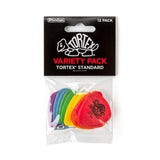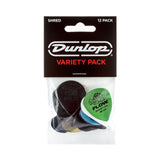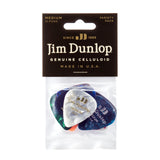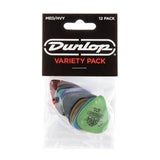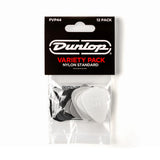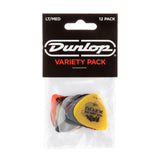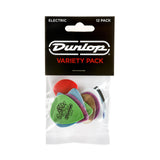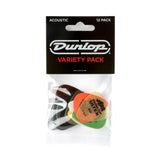Getting into guitar wiring mods is a great way to both understand more about your instrument, as well as help to enhance the functionality of your instrument and most importantly, harness great tone. Many a famed guitarist have had their guitar electronics customised to unlock the unfathomable depths of tone, with anything from coil-splitting to the Stratocaster 7-way switch mod. In this article we’re going to lay out what you need to get started, plus explain some popular guitar wiring mods.
Guitar Wiring Components
To understand guitar wiring, you’ll need to know a bit more about the individual components of a guitar, how they work, and how they interact with one another. We’ve got several excellent guides for you if you’d like to go more in-depth on these topics, but for now we’ll just cover the basics.
Potentiometers
A potentiometer works in a very similar way to your typical light switch dimmer, by allowing specific amounts of electrical signal to flow through. This is how by turning your volume and tone knobs up or down, you get a perceptible change in sound. With a volume knob, this simple analogy works well, but your tone knobs are a slightly different kettle of fish.
Tone knobs work in sync with capacitors (more of which further down) to create a simple form of EQ. With a capacitor attached only a portion of the signal is removed instead of all of it, giving you the effect of the high frequencies disappearing as you roll the knobs off.
To learn more about Potentiometers, check out our full article here.
Tone Capacitors
Capacitors draw out higher frequency signals whilst allowing low frequencies to continue unimpeded. They are typically soldered between the pot and the ground to roll off the high frequencies going through the circuit, resulting in a darker sound hitting your amplifier. Capacitors can work in many different ways to give rapid change to your guitar tone, and their use in guitar wiring mods is frequent.
For a deep dive into capacitors check out the full article here.
Guitar Switches
Your guitar switch, also known as a pickup selector, activates certain pickups in your guitar circuit, depending on how it’s been wired. It’s one of those things we guitarists take for granted, but there are a whole host of ways you can get more out of your guitar switch, by activating pickups in different orders or combinations to those tried and tested for varied and interesting guitar tones.
Guitar Wire
Lastly, the thing that holds it all together, guitar wire. Most guitar wire is made out of copper, although you will occasionally find aluminium in there too. Some has a solid core, whereas others have multiple strands braided together and it’s the latter you’ll most likely be dealing with in guitar wiring.
Our Favourite Guitar Wiring Mods
Now that we understand more about the critical components of guitar wiring, it’s time to look at the exciting bit, our favourite guitar wiring mods! Some of these are relatively simple, others will require a more experienced hand, but all of them allow you to unlock the true potential of your guitar tone.
Strat Blender Mod
The Strat blender mod is a clever little wiring harness that allows for multiple pickup configurations without any extra switches or push pull pots. It uses a blender pot that acts as a true bypass when turned completely clockwise, allowing you to blend the bridge and neck pickup sounds together. With your switch in the neck position, the blender knob allows you to gradually bring the bridge pickup in, and vice versa for the bridge position. With the selector in positions 2 and 4 you will have all three pickups at once!
Strat 7 Way Switch Mod
The Strat 7-way switch mod utilises a push/pull volume pot to switch on the bridge pickup in any position. It allows you to use all three pickups at once, as well as letting you use just the bridge and neck together. Dave Gilmour was a famous proponent of this mod, utilising the mini switch version on his famous black Strat. There was also a version of the Strat that featured three mini switches to give you more flexibility with your pickup selection.
4 Way Telecaster Switch
The 4-way Telecaster switch mod is a hugely popular one for all the Tele players, putting your pickups in series rather than parallel. With your pickups in parallel, the volume seems to drop in the middle position when your pickup is combined with another. This is because each pickup loses a bit of its output when combined with another. With a series circuit, you get more volume, because the signal from one pickup is fed into the other before going to the output. This does also mean that while you gain output, you will lose a little high end, because of the longer distance the signal has to travel.
Delta Tone for Stratocaster
Another simple yet powerful mod for the Strat, the ‘Delta Tone’ system makes a change to your tone knobs. When turning from 1-9, everything is as you would normally expect in terms of tone. However once you turn to 10, you’re taking the capacitor and pot out of the circuit, giving you a lot more output and more midrange and treble in your guitar tone. This wiring mod uses ‘no load’ pots and essentially acts as an onboard booster pedal, great for guitarists who regularly play live.
In Conclusion
None of these guitar wiring mods are particularly complex, but all of them allow you to substantially change your guitar tone, and do it a cost significantly less than that of a new amp or even a guitar pedal. If you’re not quite getting the sound you want out of your pedalboard or amp combination, it’s worth trying one out to see if you can find your holy grail of tone.
Learn More
Understanding how Guitar Potentiometers work is key to furthering your guitar wiring knowledge.
Guitar Capacitors are a small but powerful electrical component of your guitar wiring.
Understanding how Guitar Resistors work is key to making more complex guitar wiring circuits.


















